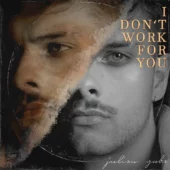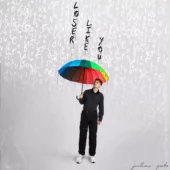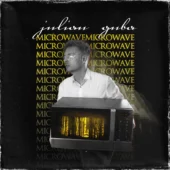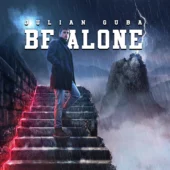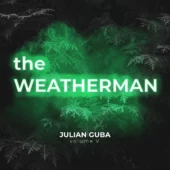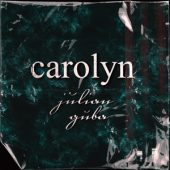My Journey as a Songwriter

My Journey as a Songwriter
Introduction
As a passionate songwriter, I have been on a thrilling journey of creativity, self-expression, and musical exploration. From penning my first lyrics as a young aspiring musician to honing my craft and sharing my music with the world, my journey as a songwriter has been filled with ups and downs, challenges and triumphs. In this article, I will share my experiences, insights, and tips on being a songwriter, from the best practices and tools to the resources and associations that have helped shape my career.
The Importance of Songwriters
Songwriters are the backbone of the music industry, responsible for creating the melodies, lyrics, and emotions that connect with audiences on a deep level. They are the masterminds behind the hits that make us sing along, dance, cry, and feel alive. Famous songwriters like Bob Dylan, Paul McCartney, and Joni Mitchell have left an indelible mark on the world with their music, and their songs continue to inspire generations of musicians and listeners alike.
Best Songwriters of All Time
Throughout history, there have been many legendary songwriters who have made a lasting impact on the music industry. Here are some of the best songwriters of all time, known for their unique styles, memorable lyrics, and timeless melodies:
- Bob Dylan – A folk-rock icon known for his poetic lyrics, social commentary, and powerful storytelling.
- Paul McCartney – A member of the iconic band The Beatles, McCartney is known for his pop-rock melodies and heartfelt lyrics.
- Joni Mitchell – A singer-songwriter and guitarist who has blended folk, pop, and jazz influences into her music, known for her soulful voice and introspective lyrics.
- Stevie Wonder – A Motown legend known for his soulful voice, funk-infused melodies, and socially conscious lyrics.
- Carole King – A singer-songwriter and pianist who has written numerous hits for herself and other artists, known for her emotional lyrics and soulful performances.
Top Songwriters Today
The music industry is constantly evolving, and there are many talented songwriters making waves in the industry today. Here are some of the top songwriters who are currently making a significant impact:
- Taylor Swift – A pop-country crossover sensation known for her heartfelt lyrics, catchy melodies, and relatable songwriting.
- Ed Sheeran – A singer-songwriter known for his acoustic pop songs and heartfelt lyrics, with a knack for writing hits that resonate with audiences.
- Billie Eilish – A young and innovative songwriter known for her unique blend of pop, electronica, and alternative influences, with deeply personal and introspective lyrics.
- Kendrick Lamar – A rapper and songwriter known for his thought-provoking lyrics, social commentary, and genre-defying music.
- SZA – A neo-soul and R&B singer-songwriter known for her soulful voice, introspective lyrics, and genre-bending music.
My Journey as a Songwriter
How I Started as a Songwriter
My journey as a songwriter began at a young age when I first discovered my passion for music. I would spend hours listening to my favorite songs, dissecting the lyrics and melodies, and dreaming of one day creating my own music. I started writing my first songs as a teenager, pouring my heart and soul into the lyrics and melodies that reflected my emotions, experiences, and perspectives.
Developing my Songwriting Skills
As I grew older, I became more dedicated to honing my songwriting skills. I studied the craft of songwriting, analyzing the work of my favorite songwriters, and learning about the elements of a great song, such as lyrics, melody, structure, and arrangement. I experimented with different song structures, chord progressions, and genres to find my unique voice as a songwriter. I also practiced my instrument of choice, whether it was guitar, piano, or another instrument, to better understand how to create melodies that complemented my lyrics.
Furthermore, I also sought feedback from fellow musicians, mentors, and friends to gain different perspectives on my songs and strengthen my writing. I learned to embrace constructive criticism and used it as an opportunity to grow as a songwriter. I also attended songwriting workshops and participated in songwriting competitions to challenge myself and gain exposure to the industry.
Sharing my Music with the World
After years of practice and honing my craft, I started sharing my music with the world. I created a songwriter website where I could showcase my songs, share my story, and connect with fellow musicians and music lovers. My website became a hub for my music, and I used it to promote my songs and upcoming performances.
I also leveraged social media platforms, such as YouTube, SoundCloud, and Instagram, to share my music with a wider audience. I posted videos of my performances, shared snippets of my songs, and engaged with my followers to build a community around my music. I used hashtags and keywords relevant to my genre and style to expand my reach and connect with potential fans and collaborators.
Using Songwriter Tools and Software
In today’s digital age, there are numerous songwriter tools and software available that have greatly enhanced my songwriting process. These tools have helped me streamline my workflow, organize my ideas, and create professional-quality demos of my songs.
One of my favorite songwriter tools is a digital audio workstation (DAW), which allows me to record, edit, and produce my songs. I can layer different instruments, add effects, and mix my tracks to create a polished sound. Some popular DAWs include Pro Tools, Logic Pro, and Ableton Live.
Another essential songwriter tool is a notation software, which helps me transcribe my melodies, chord progressions, and lyrics into sheet music. This allows me to share my songs with other musicians, collaborate with other songwriters, and submit my songs for licensing or publishing opportunities. Some popular notation software includes Sibelius, Finale, and MuseScore.
In addition, I use lyric-writing software to help me brainstorm ideas, organize my lyrics, and find rhymes or synonyms. These software tools provide me with creative prompts, help me structure my lyrics, and generate new ideas when I’m feeling stuck. Some popular lyric-writing software includes MasterWriter, RhymeZone, and Evernote.
How to Become a Songwriter
Becoming a songwriter requires passion, dedication, and perseverance. Here are some steps to help aspire to songwriters get started:
- Develop your skills: Practice your instrument, study songwriting techniques, and immerse yourself in different genres and styles of music. Experiment with different chord progressions, melodies, and lyrics to find your unique voice as a songwriter.
- Write regularly: Set aside time to write regularly, even if it’s just a few lines or chords. Treat songwriting as a skill that needs constant practice and improvement. Write about your experiences, emotions, and perspectives to create authentic and relatable songs.
- Seek feedback: Share your songs with fellow musicians, mentors, and friends to gain feedback and different perspectives. Embrace constructive criticism and use it as an opportunity to grow as a songwriter. Consider joining songwriting workshops or communities to connect with other songwriters and receive feedback on your work.
- Build your network: Connect with other musicians, songwriters, producers, and industry professionals to build your network. Attend local music events, open mics, and songwriter showcases to meet like-minded individuals and potential collaborators. Join songwriter associations or organizations to access resources, workshops, and networking.
- Create your online presence: Build a songwriter website or create profiles on social media platforms to showcase your music and connect with your audience. Share your songs, updates, and behind-the-scenes content to engage with your fans and build a loyal following.
- Utilize songwriter tools and software: Take advantage of songwriter tools and software, such as digital audio workstations (DAWs), notation software, and lyric-writing software, to streamline your songwriting process and create professional-quality demos of your songs.
- Collaborate with others: Collaborate with other songwriters, musicians, and producers to broaden your creativity and expand your musical horizons. Collaborations can bring fresh perspectives and new ideas to your songs, and also provide opportunities for networking and exposure.
- Pursue licensing and publishing opportunities: Explore opportunities to license your songs for film, TV, commercials, or other media. Register your songs with a performing rights organization (PRO) to collect royalties when your songs are performed or broadcasted. Consider seeking publishing deals or working with music publishers to promote and distribute your songs.
- Continuously learn and improve: Songwriting is an ever-evolving craft, so never stop learning and improving your skills. Attend songwriting workshops, seminars, and conferences to learn from industry professionals and fellow songwriters. Stay updated with the latest trends and techniques in songwriting, music production, and marketing.
Songwriter Jobs and Career Opportunities
As a songwriter, there are various career opportunities and jobs within the music industry. Some of these include:
- Songwriter for hire: Some songwriters work as freelancers and are hired by artists, bands, or production companies to write songs for their projects. This can include writing songs based on specific themes, genres, or styles, and collaborating with other musicians and producers to create a cohesive sound.
- Music producer: Songwriters with production skills can also pursue careers as music producers. They can work with artists and bands to create and produce their songs, oversee the recording process, and shape the overall sound of the final product.
- Music publishing: Songwriters can work in the music publishing industry, which involves promoting, distributing, and licensing songs. This can include pitching songs to artists, bands, or music supervisors for placement in TV shows, films, commercials, or other media, and negotiating licensing deals on behalf of songwriters.
- Music educator: Some songwriters choose to share their knowledge and experience by becoming music educators. This can include teaching songwriting classes, workshops, or private lessons to aspiring songwriters, or working as instructors in music schools or universities.
- Performing songwriter: Many songwriters also decide to perform their songs as solo artists or as part of a band. This can involve touring, recording albums, and building a fan base through live performances and online presence.
- Songwriter associations and organizations: Some songwriters work for songwriter associations or organizations, such as ASCAP, BMI, or SESAC, which are performing rights organizations that collect royalties on behalf of songwriters and ensure they are compensated for their work.
- Music industry roles: Songwriters can also pursue careers in other roles within the music industry, such as music journalists, A&R representatives, music supervisors, or music consultants. These roles involve working with songwriters, artists, and other industry professionals to curate, promote, and distribute music.
Songwriter Salaries and Royalties
The income of a songwriter can vary greatly depending on various factors, such as the level of success, genre, and the type of work they do. Some songwriters may earn a steady income, while others may experience fluctuations in their earnings.
Songwriters typically earn royalties from their songs, which are generated through various streams, including mechanical royalties, performance royalties, and synchronization
royalties. Mechanical royalties are earned when your songs are sold or streamed, and are paid by the record labels or digital platforms. Performance royalties are earned when your songs are performed in public, such as on radio, TV, or live performances, and are collected and distributed by performing rights organizations (PROs) like ASCAP, BMI, or SESAC. Synchronization royalties are earned when your songs are used in TV shows, films, commercials, or other media, and are negotiated and paid by the production companies or music supervisors.
The amount of royalties earned can vary depending on factors such as the popularity of the song, the number of times it is streamed, sold, or performed, and the royalty rates set by the PROs or negotiated in licensing deals. Royalty rates also vary by country and region, and it’s important to understand the specific laws and regulations governing royalties in your location.
In addition to royalties, songwriters may also earn income from other sources, such as performance fees for live performances, sales of merchandise, music licensing fees, or sales of sheet music. Some songwriters may also receive advances from music publishers or production companies when signing publishing or licensing deals, which can provide upfront income.
It’s significant to note that songwriting can be a competitive field, and not all songwriters may earn a substantial income from their work. Success in the music industry often requires a combination of talent, hard work, perseverance, networking, and business savvy. It’s essential to understand the various revenue streams available to songwriters, and actively manage and diversify your income sources to sustain a successful career.
Songwriter Tips and Resources
Here are some useful tips and resources for aspiring songwriters:
- Write regularly: The more you write, the better you get. Make it a habit to write regularly, even if it’s just a few lines or ideas every day. Practice is key to expanding your songwriting skills and developing your unique voice as a songwriter.
- Be authentic: Write from your heart and be true to yourself. Authenticity resonates with audiences and makes your songs more relatable and impactful. Don’t be afraid to be vulnerable and share your stories and experiences through your music.
- Edit and refine your songs: Songwriting is a process, and your first draft may not always be your best work. Take the time to revise, edit, and refine your songs to make them the best they can be. Seek feedback from trusted sources, such as fellow songwriters, mentors, or music industry professionals, and be open to constructive criticism.
- Study the work of famous songwriters: Listen to songs from famous songwriters across different genres and eras, and analyze their song structures, melodies, lyrics, and production techniques. Learn from their craft and incorporate elements that inspire you into your songs.
- Collaborate with other musicians: Collaborating with other musicians can bring new ideas and perspectives to your songs, and also provide opportunities for networking and exposure. Seek opportunities to collaborate with other songwriters, musicians, and producers, and be open to different styles and genres of music.
- Build a strong online presence: In today’s digital age, having a strong online presence is crucial for songwriters. Create a songwriter website, set up social media profiles, and use online platforms to showcase your music, connect with your audience, and build a fan base.
- Stay informed about the music industry: The music industry is constantly evolving, so it’s important to stay informed about the latest trends, technologies, and business practices. Subscribe to industry newsletters, follow music industry blogs and websites, and attend workshops, seminars, and conferences to stay updated with the latest information and opportunities.
- Join songwriter associations: Joining songwriter associations, such as ASCAP, BMI, or SESAC, can provide valuable resources and support for songwriters. These associations offer educational programs, networking opportunities, and advocacy for the rights of songwriters. They also provide information on royalty collection, licensing, and legal issues related to the songwriting. Being a member of a songwriter association can help you stay informed, connected, and protected in the music industry.
- Attend songwriter workshops and conferences: Songwriter workshops and conferences are excellent opportunities to learn from industry professionals, network with fellow songwriters, and showcase your songs. Look for workshops and conferences in your local area or industry events that focus on songwriting, and try to attend and participate in these events.
- Use songwriter tools and software: There are many songwriter tools and software available that can help you in your songwriting process. These tools can assist with melody creation, chord progressions, lyric brainstorming, and even production. Some popular songwriter software includes Logic Pro, Pro Tools, and GarageBand. Experiment with different tools and find the ones that work best for your creative process.
- Collaborate with other songwriters and producers: Collaboration can open up new creative possibilities and expand your network. Reach out to other songwriters and producers to collaborate on projects, co-write songs, or even start a band. Collaborating with others can bring fresh ideas and perspectives to your music and help you grow as a songwriter.
- Keep learning and improving: Songwriting is an ongoing learning process, and it’s important to continually hone your skills and knowledge. Take advantage of online resources, workshops, courses, and mentorship opportunities to keep learning and improving your craft. Stay curious and open to new ideas, techniques, and genres to keep pushing the boundaries of your songwriting.
- Protect your rights: As a songwriter, it’s crucial to understand and protect your rights to your original music. Educate yourself about copyright laws, licensing, and contracts. Consider consulting a music attorney or a music business professional to ensure that your rights are protected, and you are compensated fairly for your work.
- Build a supportive community: Surround yourself with a supportive community of fellow songwriters, musicians, and industry professionals. Connect with other songwriters through local songwriting groups, online forums, or social media communities. Share your experiences, learn from others, and support each other’s growth and success.
- Stay persistent and resilient: The music industry can be challenging and competitive, and success as a songwriter may not come overnight. Stay persistent, resilient, and committed to your craft. Be prepared to face rejection, setbacks, and obstacles along the way, but never give up on your passion for songwriting.
Some of my Songs:
| Song Title | Release Date |
|---|---|
| All Van Dej | 2019 |
| Again With You | 2019 |
| Late Love | 2020 |
| Carolyn | 2021 |
| The Weatherman | 2021 |
| Be Alone | 2022 |
| Monsters Under My Bed | 2022 |
| Will I Ever See You Again | 2022 |
| Microwave | 2022 |
| Fine Without You | 2023 |
Conclusion
Songwriting is a challenging but rewarding career path for those with a passion for music and storytelling. It requires creativity, dedication, perseverance, and a willingness to continuously learn and evolve. By honing your skills, utilizing songwriter tools and resources, building a supportive community, and protecting your rights, you can pursue a successful and fulfilling career as a songwriter.
While the music industry can be competitive and unpredictable, with hard work, persistence, and a bit of luck, you can achieve your dreams of becoming a successful songwriter. Remember to stay true to your authentic voice, constantly improve your craft, and never stop learning and growing as a songwriter. Embrace the challenges, celebrate the successes, and enjoy the journey of expressing yourself through the power of music. Happy songwriting!


